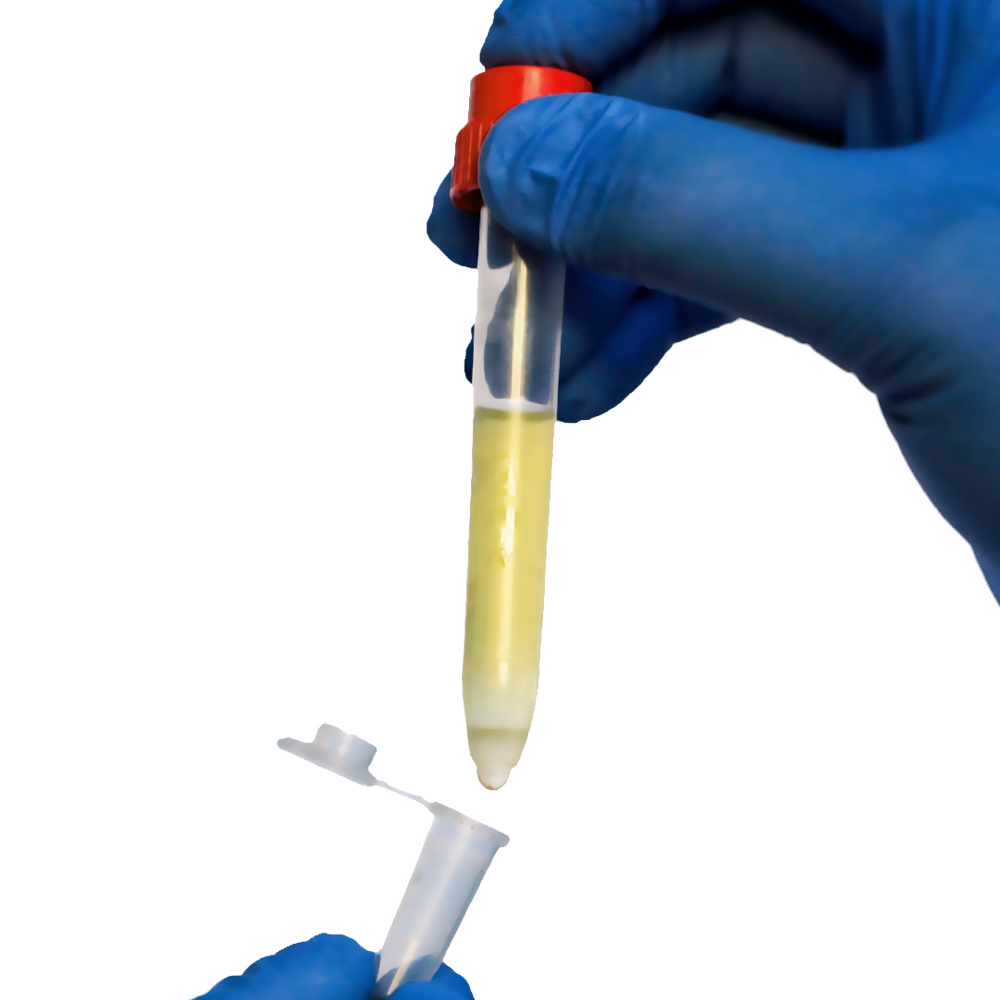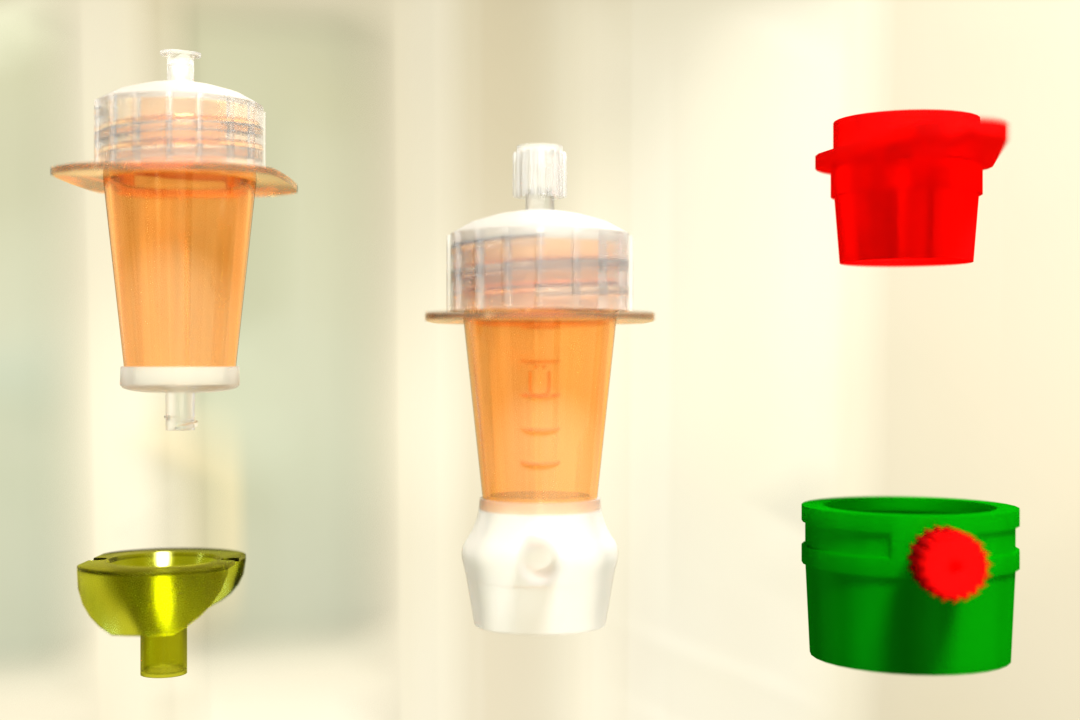In laboratories, achieving precise cell separation and enrichment is critical for successful experiments. The lab cell strainer plays an indispensable role in this process, helping researchers filter cells, isolate particles, and prepare suspensions. While plastic cell strainers have been the norm, the Steel Basket-Strainers have emerged as a viable alternative. These durable devices promise efficiency, and reliability, making them a preferred choice for laboratories worldwide.
Understanding Steel Basket-Strainers
Steel Basket-Strainers are engineered to meet the demands of modern labs. Made of non-magnetic SS 316 steel, it offers excellent mechanical stability, making it suitable for extracting liquids from porous materials. The strainer fits seamlessly into standard 50 ml tubes, measures 45 mm in length, and holds up to 20 ml of material. Designed for high-performance applications, they can filter up to 30 g of solid material at speeds of up to 2,000 x g without compromising their structural integrity.
Available in five pore sizes—20 µm, 50 µm, 100 µm, 200 µm, and 500 µm—Steel Basket-Strainers cater to various needs, from tissue dissociation to particle filtration. Their robust design ensures they can handle high pressures and temperatures, making them a versatile laboratory tool.
Benefits of Steel Basket-Strainers Over Plastic Strainers
1. Durability and Reusability
Steel Basket-Strainers are built to last. Unlike plastic strainers that are single-use, the stainless steel design can be reused multiple times. Regular maintenance through heat sterilization or autoclaving keeps them as good as new, offering significant cost savings over time.
2. Versatile Applications
These strainers shine in a wide range of applications, including:
- Cell separation: Ideal for isolating specific cell populations with minimal effort.
- Tissue dissociation: Break down tissue samples effectively without clogging or loss of material.
- Cosmetic and chemical industries: Ideal for retaining particles in creams, serums, and chemical solutions.
Their ability to withstand extreme conditions further broadens their usability in the aerospace, food processing, and water treatment industries.
3. Superior Filtration Efficiency
The combination of an SS 304 stainless steel ring and an SS 316 stainless steel mesh provides exceptional filtration capabilities. The mesh ensures consistent particle retention, making it suitable for preparing single-cell suspensions or extracting liquids from porous materials. The absolute retention rating ensures no unwanted material escapes the filter.
Key Features That Set Steel Basket-Strainers Apart
High Mechanical Stability
Steel Basket-Strainers maintain their shape and function even under high centrifugal forces. This mechanical stability makes them suitable for rigorous lab processes, including the dissociation of tissue and cells or handling dense solutions.
Heat Resistance
Plastic strainers often deform or degrade under high temperatures, limiting their usability. Steel Basket-Strainers, on the other hand, can endure heat sterilization, autoclaving, and high-pressure environments without compromising performance. This makes them an ideal choice for applications involving elevated temperatures.
Environmentally Friendly
By switching to Steel Basket-Strainers, labs can reduce their reliance on disposable plastic strainers, contributing to sustainability efforts. Their reusable nature aligns with modern environmental goals, minimizing waste and lowering long-term costs.
Applications of Steel Basket-Strainers
Steel Basket-Strainers cater to a variety of lab and industrial applications, thanks to their strength and adaptability. Some prominent uses include:
-
Lab-Based Applications
- Preparing single-cell suspensions for cytology and flow cytometry.
- Alternative to gauze filtration for cleaner and more reliable results.
- Efficient cell enrichment through negative or positive selection processes.
-
Industrial Applications
- Particle retention in cosmetics and syrups.
- Water treatment processes that require robust filtration systems.
- Filtration of petroleum and other chemicals for quality assurance.
By excelling in both laboratory and industrial settings, Steel Basket-Strainers prove their versatility and importance.
Why Researchers and Businesses Prefer Steel Basket-Strainers
Researchers and industrial professionals have increasingly turned to Steel Basket-Strainers due to their superior design and performance. The following factors make them a worthwhile investment:
- Ease of Maintenance: Steel Basket-Strainers are easy to clean and regenerate. Backwashing or using an ultrasonic bath restores their functionality, ensuring optimal performance in every use.
- Cost-Effectiveness: Though the initial investment may be higher than plastic alternatives, the durability and reusability of Steel Basket-Strainers make them a cost-efficient choice in the long run.
- Consistency and Precision: In critical experiments, maintaining consistent results is key. Steel Basket-Strainers provide uniform particle retention, making them ideal for high-stakes research and development tasks.
How Steel Basket-Strainers Enhance Lab Efficiency
Switching to Steel Basket-Strainers can significantly improve lab workflows. Here’s how:
- Minimized Downtime Their sturdy construction reduces the need for frequent replacements, minimizing interruptions in lab operations.
- Improved Output Quality By delivering precise filtration, these strainers enhance the quality of cell suspensions and isolated materials, leading to more reliable experimental outcomes.
- Simplified Protocols Their compatibility with standard 50 ml tubes and straightforward cleaning methods make them easy to integrate into existing lab protocols.
- Enhanced Safety Reusable steel strainers eliminate the risks associated with plastic degradation, such as contamination or leaching of chemicals into samples.
Best Practices for Using Steel Basket-Strainers
To maximize the lifespan and efficiency of Steel Basket-Strainers, follow these best practices:
- Regular Cleaning: After each use, clean the strainer thoroughly with an ultrasonic bath or by backwashing the system. This removes residual particles and prevents clogging.
- Sterilization: Heat sterilization or autoclaving ensures the strainer remains free of contaminants, maintaining sample integrity.
- Careful Handling: Although highly durable, avoid unnecessary bending or physical stress on the strainer to preserve its structural integrity.
Conclusion
The shift from disposable plastic strainers to Steel Basket-Strainers marks a step forward in laboratory efficiency and sustainability. With their robust design, reusability, and superior filtration capabilities, these strainers are a valuable addition to any lab setup. Whether you’re performing cascade straining or working on cell enrichment, these strainers deliver reliable results every time.
By investing in a durable and versatile lab cell strainer, labs and industries can reduce costs, enhance precision, and contribute to environmental sustainability. Steel Basket-Strainers are more than just a tool—they’re a solution for better research and production outcomes. Explore their potential today and elevate your processes to the next level.
 English
English French
French
 German
German
 Spanish
Spanish
 Belgium
Belgium
 Italian
Italian Brazil
Brazil Chinese Mandarin
Chinese Mandarin




